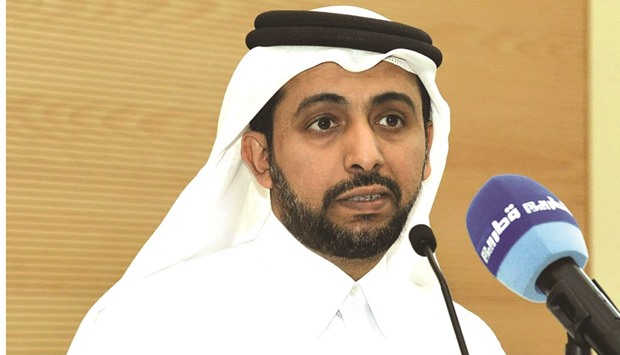Research and development (R&D) efforts to meet the “key challenges” on energy, cyber, and water security under the Qatar National Vision 2030 should not be limited by budget cuts after oil prices fell, said Qatar University president Dr Hassan al-Derham. In a report by Gulf Intelligence on the country’s water security, he said the past decade saw the dedication of “Qatar’s brightest minds” towards designing and building a successful R&D ecosystem across multiple platforms.
“The economic impact of lower oil prices on budgets should not be allowed to curb R&D associated with Qatar’s three key challenges,” said al-Derham, who noted that 86% of respondents to a Gulf Intelligence industry survey in April agreed that “continuing such investments is an absolute must-have.”
“Maintaining this momentum is especially important as 42% of respondents said that Qatar’s management of its three key challenges is not urgent enough. Qatar’s push for a knowledge-based economy is at the heart of its energy, cyber, and water security targets,” al-Derham said.
According to al-Derham, the country “must change gear” and focus on collecting precise results from all of Qatar’s R&D studies under the three key challenges “to generate fresh intelligence” and enable the state “to progress at a faster rate.”
Al-Derham also stressed that there must be a partnership between industry and academia. “But Qatar’s three key challenges will not succeed without a clear alliance between its industry and academia. Gaps in this relationship could have significant and negative consequences as the years roll on and if not addressed, Qatar’s progress will not accelerate as quickly as we need it to.
“Industry should be ready to help academia propel their learning and research capabilities and ensure that it has the tools it needs to facilitate world-class R&D. This includes investing in new laboratories or particular research projects where companies can also contribute their practical on-site expertise and knowledge,” he said.
Al-Derham underscored the need for “clearer processes” that would boost Qatar’s ability to do applied research, which can lead to innovative technologies in the energy, cyber, and water sectors.
“Commercialising and exporting these innovations is another tick in Qatar’s box to become a knowledge-based economy by 2030. A knowledge-based economy means moving away from the dependence on oil and gas revenues and instead, focusing on elevating the intellect and expertise of nationals in Qatar,” he said.
Al-Derham pointed out that having the right talent pool “would also help academia prepare today’s curriculum to create tomorrow’s professionals.”
“Equally, Qatar’s academia cannot do research purely for the sake of research. Efforts have to be focused in order to deliver results that are useful to the industry and to Qatar’s economy as a whole. It must be a holistic and organised effort. Platforms where industry and academia can communicate are essential to ensure that each side is moving in a similar direction,” he said.

Al-Derham: For building a successful R&D ecosystem across multiple platforms.

